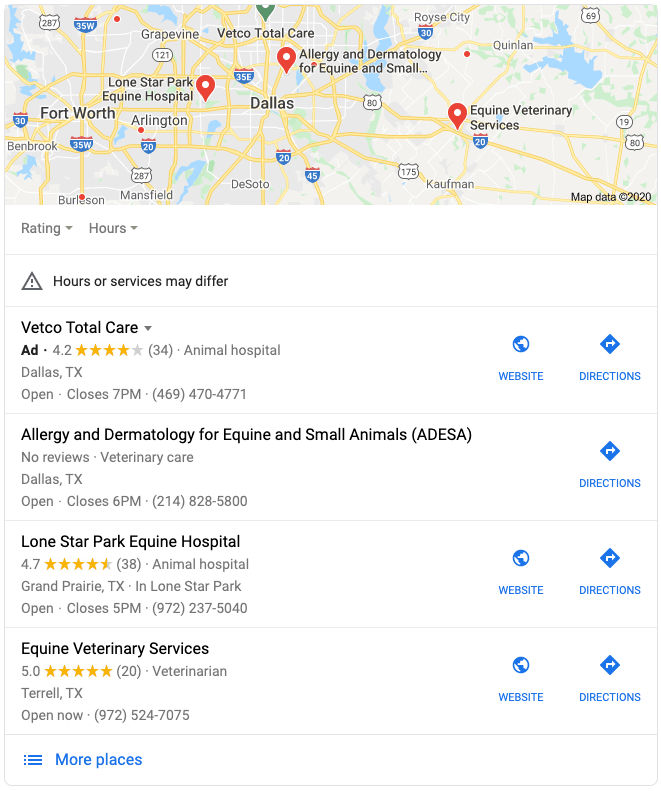This week at Kairos Design, we asked our resident analytics specialist an important question: “If I’m a small business owner, how can I improve my website ranking? And better yet, how can I improve my website ranking on my own?“
Since the dawn of the age of the internet, businesses have been migrating to cyberspace to make sure they stay visible to their customers. Today, business owners have to prioritize digital marketing and SEO so that their site isn’t buried among all of their competitors. This leaves many self-starting entrepreneurs tackling their SEO all by themselves.
Usually, website SEO maintenance and content marketing is best left to a professional, but we believe that it’s possible for the busy entrepreneur to invest time rather than money.
So, Kairos Design gathered five easy, DIY SEO tips to help improve your Google website ranking and improve your audience reach. These tips will help you get started, and the simplicity may surprise you!
1. Find Your Keywords (And Then Use Them!)
Firstly, it’s important to know your keywords. You’ll want to conduct in-depth research on your industry, your competitors, and your current ranking. To differentiate your business from your competition and improve your website ranking, you’ll also need to be firm on your brand identity.
Are you having trouble with your brand identity? Are you even asking questions like, “What is branding?” Don’t worry. Download our free brand identity checklist to help you get started!
When choosing your keywords, keep in mind that they should be helping your ideal customers to find your business, so it’s best to avoid anything overly broad or vague. Also, as a friendly reminder, note that search engines are constantly updating their search parameters. If it’s been a few years since you last chose your keywords, it may be time to revisit. For examples, check out this article on how voice search is changing SEO tactics.
Once you’ve chosen 3-5 focus keywords, you need to use them when you create content. Many entrepreneurs use their keywords in their website’s “About” page and its blog, but then they make one of two mistakes:
- They stop prioritizing SEO and keyword-focused content, or even stop releasing content altogether.
- They release content, but they don’t use keywords within their blog titles, permanent pages, URL slug and snippets.
If this sounds like you, don’t stress! As far as fixes go, this is a pretty easy one. Update your website’s permanent pages, like your “About,” “Portfolio,” and “Services” pages, to focus on your keywords. Take a look at previous blogs, and update your SEO keywords as needed. If you’re publishing content regularly, try to use the keywords throughout the piece, in the title, and in the URL slug for best results.
Not only will this help optimize your new content, but updating existing pages and blogs every 18 months or so will help Google’s search engines notice that your website is relevant and well-maintained, which should improve your website ranking.

2. Experiment With Question-Based Keywords
Long-tail keywords are growing in popularity, and you should consider experimenting with them for best results. With the rise of voice search using smartphone voice-to-text (and even Google Home and Alexa), you’ll want to stay up-to-date with the latest trends.
Long-tail keywords are especially effective because they narrow down the search parameters, meaning that your customers can find a site that fits their query more easily. Question-based keywords also help you to better connect with potential customers, and provide a unique opportunity to present your brand as a solution to their question.
For more DIY SEO tips and resources, check out the following sites to get started:
3. Merge Moderns Events & Helpful Advice
During times of mass uncertainty, large amounts of people will be looking for answers on a broad variety of topics. For instance, an event as large as the COVID-19 pandemic saw an influx in searches related to the topic. Things that had never been problems before, quickly came under question and scrutiny.
Take a look at your industry. How has COVID impacted your customers? What kinds of questions are they asking, and can you answer any of them?
Your customers may look to your brand as an authority, if you can address things like:
- How your product can solve a common problem that has arisen because of COVID-19.
- What are some problems that your customers are currently unaware of, but could run into soon as a result of the pandemic?
- Where your customers can find more virtual resources.
With a modern event as large as the COVID-19 crisis, you’ll find that most successful businesses are updating their sites to address common problems their users are or could eventually run into. This can include updating the Q&A section to address incoming queries, or writing blogs like that tackle common subjects (and use the keywords in their title, URL slug, and body text to improve their SEO at the same time).
This doesn’t mean that you should suddenly start writing blogs and op-eds on topics that are out of your scope. Instead, brainstorm how your industry could be impacted by current events, and what kind of questions your ideal customer could find themselves asking.
Then, your content can be updated, and you’ll have improved your website ranking and SEO!

4. Link Similar Pages To Each Related Page
Whether you’re building permanent site pages or adding content to your blog, chances are that some of your information may overlap. A good rule of thumb is to link as many related pages as possible to each page of your site.
For instance, your “About” page may contain links to your portfolio, your services offered, or even your lead capture form. A blog post focusing on a broad topic may contain embedded links to blog posts on subtopics. For example, this blog post is focusing on DIY SEO tips, and also links to related blogs, like What is Branding?, How Voice Search Tactics Are Changing SEO, and even our free brand checklist guide. That’s on purpose!
When you link your posts to related posts, it helps search engines to recognize that you write about a subject a lot. Turning your website into a resource, whether it’s with the services you provide on your permanent pages, or with the information you provide in your content, does two major things for your brand:
- It positions your brand as a leader in the industry, and
- It helps increase your SEO ranking, and therefore, overall website visibility.
This one simple DIY SEO tip is as easy as it gets!
5. Update Your Google My Business Listing
Google is one of the most popular search engines in the world, and one of their biggest features is the “near me” search function. You can look for anything from dentists to internet service providers to horse veterinarians, and Google will show you what business is nearby and can fill your need.
Here’s a visual:

If your business does not pop up within those search results, you’re missing an untold number of leads — but don’t worry! You can easily update your Google My Business (GMB) listing online.
Creating and maintaining a Google My Business (GMB) account listing is one of the best DIY tips to improve your website ranking.
Click here for the link to update your GMB listing.
Conclusion
Investing in digital marketing for your business is the best way to increase awareness around your product and scale your company. But, as you’ve just read above, it’s possible to invest your time rather than your money.
Use these DIY SEO tips to improve your website ranking (and your chances of being seen by your ideal customers!) and benefit from the long-term results.
Need help getting started with your SEO keywords? Contact us today for a free consultation!

Leave a Reply
You must belogged in to post a comment.